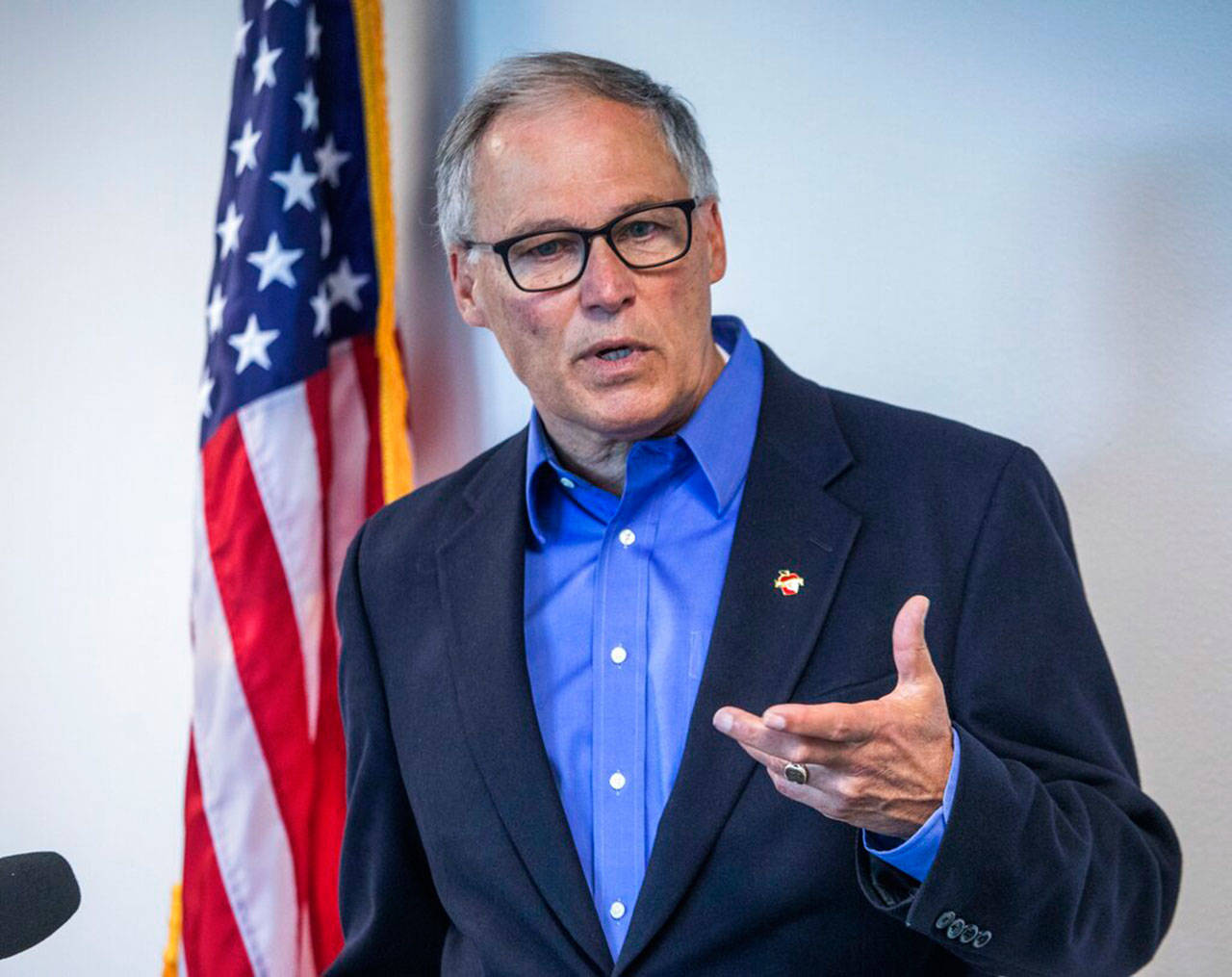By The Herald Editorial Board
There’s bad timing. Then there’s the Washington Citizens Commission on Salaries for Elected Officials.
The state salary commission is the panel of 17 appointed members who have the thankless task of setting pay for the state’s legislators, the governor, judges and the elected heads of state agencies. The latest schedule of pay raises, approved in February 2019, raised base pay for each job by varying amounts and added a 2 percent cost-of-living adjustment. The first round took effect that July.
But in terms of the state’s economic vitality and its then-flush reserves, February 2019 wasn’t February 2020, and it certainly wasn’t May 2020, as the enormity of the coronavirus pandemic and its effects on local, state and national economies came into sharper relief.
The pay raises, which have increased at a modest and defensible pace since 1999, often irritate a sore spot among the public and even generate brief objections among some lawmakers who want to be seen as budget conscious, yet still quietly accept the raises — and an optional $120 per diem while in session — nevertheless. That irritation — and calls to abolish the commission and give the authority for determining salaries back to lawmakers — are certain to grow louder now.
Just as the state needs to address an estimated $7 billion shortfall in revenue through mid-2023 because of an almost certain recession — including a $3.8 billion revenue reduction through June 2021 — those state officials will see another bump in salary as of July 1.
According to the commission’s salary schedule, most state lawmakers, whose pay increased from $48,731 to $52,766 last July, will be paid $56,881 as of July 1. House leaders of each party will see their pay raised to $60,881; Senate leaders’ pay will increase to $64,881.
The governor’s pay — $177,107, prior to the latest schedule — increased to $182,179 last July and will increase to $187,353 this July. Other state elected officials pay will increase, as well, ranging from $117,300 for the lieutenant governor to $172,259 for the attorney general. Judicial pay, as of July 1, will range from $190,120 for District Court judges on up to $223,499 for the state Supreme Court Chief Justice.
A special session is likely later this year to address the revenue shortfall. Gov. Jay Inslee already has ordered a state employee hiring freeze and told state agencies to prepare cuts of at least 15 percent from their departmental budgets. Republican lawmakers, who want legislators to be called back into session as early as next month, have asked the governor to declare a revenue shortfall and reopen collective bargaining agreements with state employees.
But lawmakers will find it difficult to ask state employees to forego the pay raises they negotiated when legislators are still getting theirs.
To their credit, a bipartisan group of 39 lawmakers — including Sen. Keith Wagoner, R-Sedro-Woolley; Sen. Ron Muzzall, R-Oak Harbor; Rep. Carolyn Eslick, R-Sultan; and Rep. John Lovick, D-Mill Creek — wrote the commission last month asking it to reconsider the scheduled raises.
Neither lawmakers nor the governor are in a position to revoke or freeze the commission’s salary schedule. Voters approved a state constitutional amendment in 1986 that established the commission, and the power to overturn its decisions rests solely with the voters, through the referendum process.
It would be voluntary, but elected officials always have the option — one that some may already take — of donating the equivalent of their raises to charity. To which charities they give is up to them, but we’ll suggest a gift to the Washington Food Fund, the effort that is seeking donations to support all food banks across the state during what will be a drawn-out period of need for hundreds of thousands of families. Such donations won’t help the budget, but they will still do some good.
Those who want to abolish the salary commission have said the authority to determine pay should rest with lawmakers who are most accountable to the voters; yet that could leave too much say regarding the salaries for positions other than their own and allow political considerations to again gain a foothold in determining the salaries of public officials.
How the commission determines what elected officials should be paid is a fair point for discussion. In setting salaries, the commission considers cost-of-living data and the pay for similar positions in other states. There’s good reason to make sure that all officials are provided compensation that attracts and retains competent people from a range of backgrounds. And the process is transparent and provides adequate opportunity for public review and comment.
But, as the current crisis has demonstrated, it’s also a system that — out of a need for that due consideration and public input — isn’t nimble enough during unforeseen circumstances, especially economic downturns.
The salary commission doesn’t need to be abolished, but it needs reforms that make it better able to adjust course in a crisis.
Talk to us
> Give us your news tips.
> Send us a letter to the editor.
> More Herald contact information.

























